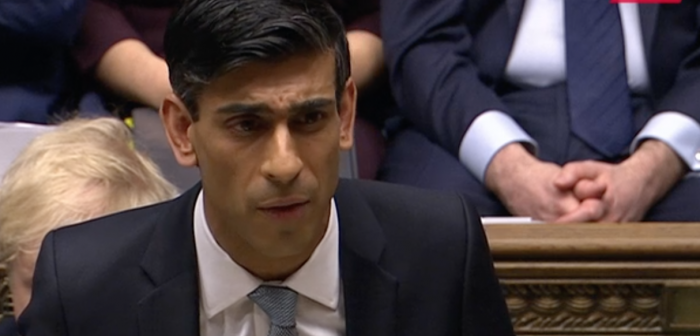The farming industry breathed a sigh of relief after Rishi Sunak announced he would not be scrapping the red diesel duty relief for agriculture.
As had been flagged up, the subsidy for off-road vehicles will be scrapped for most sector in two year’s time, but Mr Sunak announced it will remain for agriculture, citing lobbying from the NFU as key to his decision, as well as for rail operators.
NFU President Minette Batters said: “This is absolutely crucial and we are pleased to see the Chancellor has acknowledged our concerns. Red diesel is the primary fuel to run the majority of agricultural machinery and it is incredibly important for the farm businesses that produce the nation’s high quality and affordable food.”
Jill Hewitt, chief executive of the National Association of Agricultural Contractors (NAAC), said the industry breathed a collective sigh of relief at the announcement.
“Whether a one-man business or a multi-million pound agricultural contracting business it was very clear that a change in the red diesel use would have been devastating for the sector,” she said.
Coronavirus
Mr Sunak also announced a £30 million package to help businesses survive the economic effects of the coronavirus outbreak, including:
- Statutory sick pay for ‘all those who are advised to self-isolate’ even if they have not displayed symptoms
- The government to meet costs for businesses with fewer than 250 employees of providing statutory sick pay to those off work due to coronavirus
- Business rates for some sectors, including shops and restaurants in England with a rateable value below £51,000 suspended for a year
- A temporary coronavirus business interruption loan scheme for banks to offer loans of up to £1.2m to support small and medium-sized businesses.
Mrs Batters said: “The commitment to cover statutory sick pay costs, providing business rates relief for many small businesses and mobilising banks lending for SMEs will help to provide resilience and support cash flow in these difficult circumstances.”
Structures and Buildings allowance
The Structures and Buildings Allowance (SBA) allows the cost of qualifying expenditure, which includes new and renovated non-residential structures and buildings, and infrastructure such as fencing, bridges and tunnels, to be written off against tax.
The Allowance, which was introduced in 2018, has been increased to 3%, so allowing investment to be written off over 33 years rather than the previous 50 years. “This is a small but welcome change and may encourage more rural businesses to invest in buildings and infrastructure,” Strutt and Parker said.
Mrs Batters added: “The NFU called for an increase to the structure and buildings allowance in its Budget submission and this increase will deliver more effective tax relief for farm buildings. It will go some way to supporting farms investing in modern, efficient infrastructure which could help to improve productivity and deliver our net zero ambition.”
Infrastructure
The budget also delivered a big increase in Government spending for infrastructure, including for flood defences and rural roads. Mr Sunak confirmed that £5.2 billion would be made available for flood defences from April 2021 until 2026 – up from £2.6bn in the five-year period from 2015.
R&D
The Government’s R&D spend will increase to £22bn. It will invest £1.4 billion over 10 years in the animal health science infrastructure at Weybridge, ‘enhancing the UK’s science capability whilst protecting the nation from the increasing threats of current and emerging animal diseases’.
CLA president Mark Bridgeman said the R&D announcement was welcome – ‘so long as an appropriate share of it is used to ensure the rural economy reaches its economic and environmental potential’.
“At present, unincorporated rural businesses do not qualify for R&D tax relief, which puts a break on the development of the rural economy. This needs to change if the Chancellor is serious about ensuring R&D funding can best be distributed across the country to help level up every region and nation of the country,” he added.
Other announcements
Other notable announcements include:
- Abolishing small business rates geared for on farm diversification
- Reducing entrepreneurs relief to £1m from £10m
- Raising the National Insurance threshold in April to £9,500 from £8,632, saving the typical employee over £100
- £5bn to be spent on getting gigabit-capable broadband into the hardest-to-reach places.




